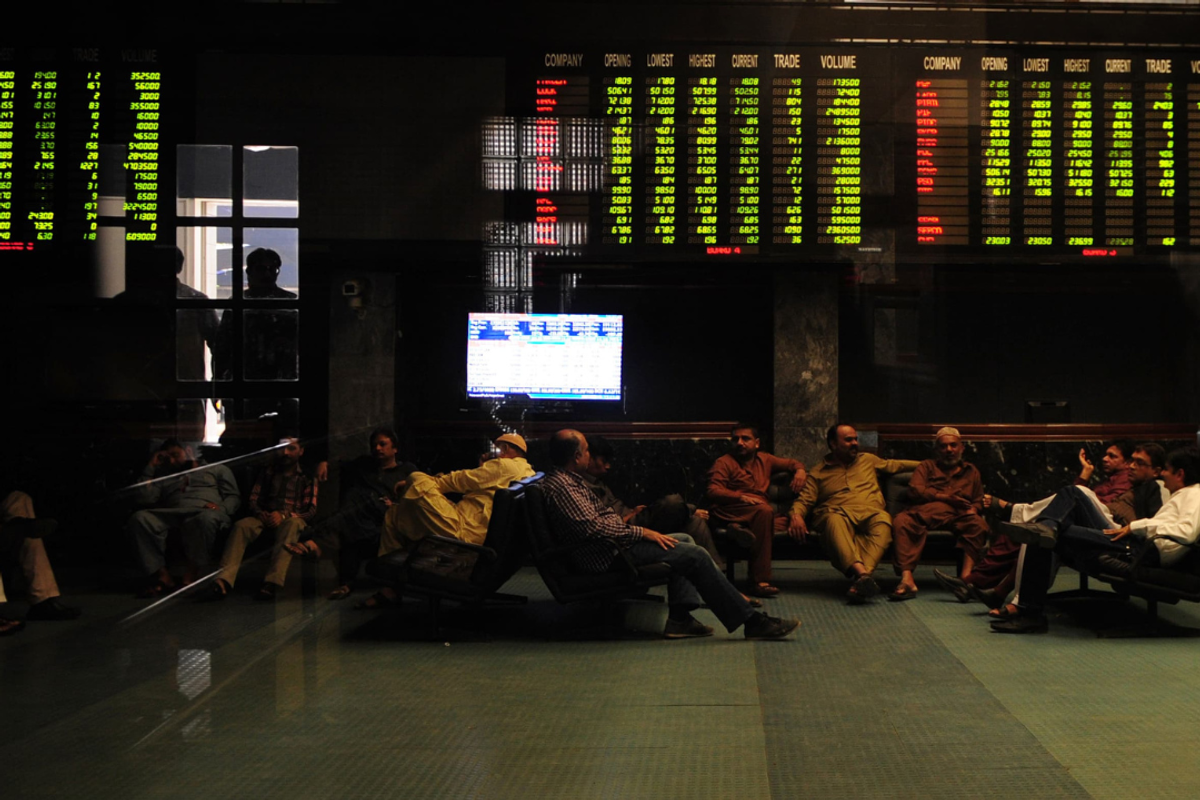Budget announcement to drive market sentiment amid fiscal tightening
Stocks rally to all-time high ahead of June 10 fiscal plan amid IMF optimism
Business Desk
The Business Desk tracks economic trends, market movements, and business developments, offering analysis of both local and global financial news.

Pakistan stock market will be closely closely watching federal budget announcement on June 10, which analysts say will be a key driver for investor sentiment in the coming week.
Sector performance is expected to hinge on changes to the taxation structure, including capital gains tax (CGT), federal excise duty (FED), import duties, regulatory duties, and income tax, according to analysts at Spectrum Securities.
With the government prioritizing increased tax and non-tax revenues, analysts say there is a low probability of fiscal stimulus, such as tax cuts, for most industries.
The budget comes as Pakistan’s National Economic Council has already outlined broader fiscal targets, including a 9% reduction in development spending under the Public Sector Development Program (PSDP) to 1 trillion Pakistani rupees ($3.6 billion) for fiscal year 2025-26, down from a revised 1.1 trillion rupees ($3.96 billion) in FY25.
The initial PSDP allocation for FY25 was 1.4 trillion rupees ($5.04 billion), but it was later slashed during the year.
The government has set a GDP growth target of 4.2% for FY26, up from this year’s projected growth of 2.7%, which fell short of the initial 3.6% target. Sector-specific growth targets include agriculture at 4.5%, industrial at 4.3%, and services at 4%.
Meanwhile, inflation is projected at 7.5% for FY26, compared to 4.61% over the first 11 months of FY24-25.
Analysts say equities are likely to outperform other asset classes as economic growth gradually improves. “Barring any negative developments, such as an increase in CGT on equities—which we see as unlikely—other tax changes, mostly indirect, should not significantly alter sector outlooks,” said an analyst at Spectrum Securities.
The KSE-100 Index, Pakistan’s benchmark stock index, hit an all-time high this week, closing at a record 121,641 points, up 1.6%, fueled by optimism over a potential IMF agreement and pre-budget speculation.
“All eyes are on the FY26 federal budget, which will set the tone for market sentiment in the near term,” said an analyst at Arif Habib Ltd. “Clarity on tax measures, fiscal reforms, and sector-specific incentives will shape investor expectations.”
The KSE-100 is currently trading at a price-to-earnings ratio (PER) of 6.4x for 2025, below its 10-year average of 8.0x, while offering a dividend yield of around 8.5%, higher than the long-term average of 6.5%.
AKD Securities noted that while budget-related developments may drive short-term volatility, declining inflation—forecast at 7.0% for FY26—could support a positive market trajectory.
The firm set a December 2025 target of 165,215 points for the KSE-100, citing strong earnings in fertilizers, stable bank returns, and improving cash flows in energy and oil marketing companies.
Currency and Commodities
The Pakistani rupee weakened slightly against the U.S. dollar, losing 15 paisas to close at 282.17 in the interbank market, pressured by external payments and geopolitical uncertainty. Since January, the rupee has depreciated 1.3%, and since July 2024, it has fallen 1.38%.
Gold prices surged 2.81% to 358,400 rupees per tola amid global economic uncertainty. Analysts project further gains, with Metals Focus forecasting a 35% jump in gold’s average annual price for 2025.
“Macroeconomic uncertainty and elevated geopolitical risks are likely to sustain investor interest,” said Philip Newman, managing director at Metals Focus. “We expect gold to break new ground, potentially reaching a record average price of $3,210—surpassing the inflation-adjusted peak from 1980.”







Comments
See what people are discussing